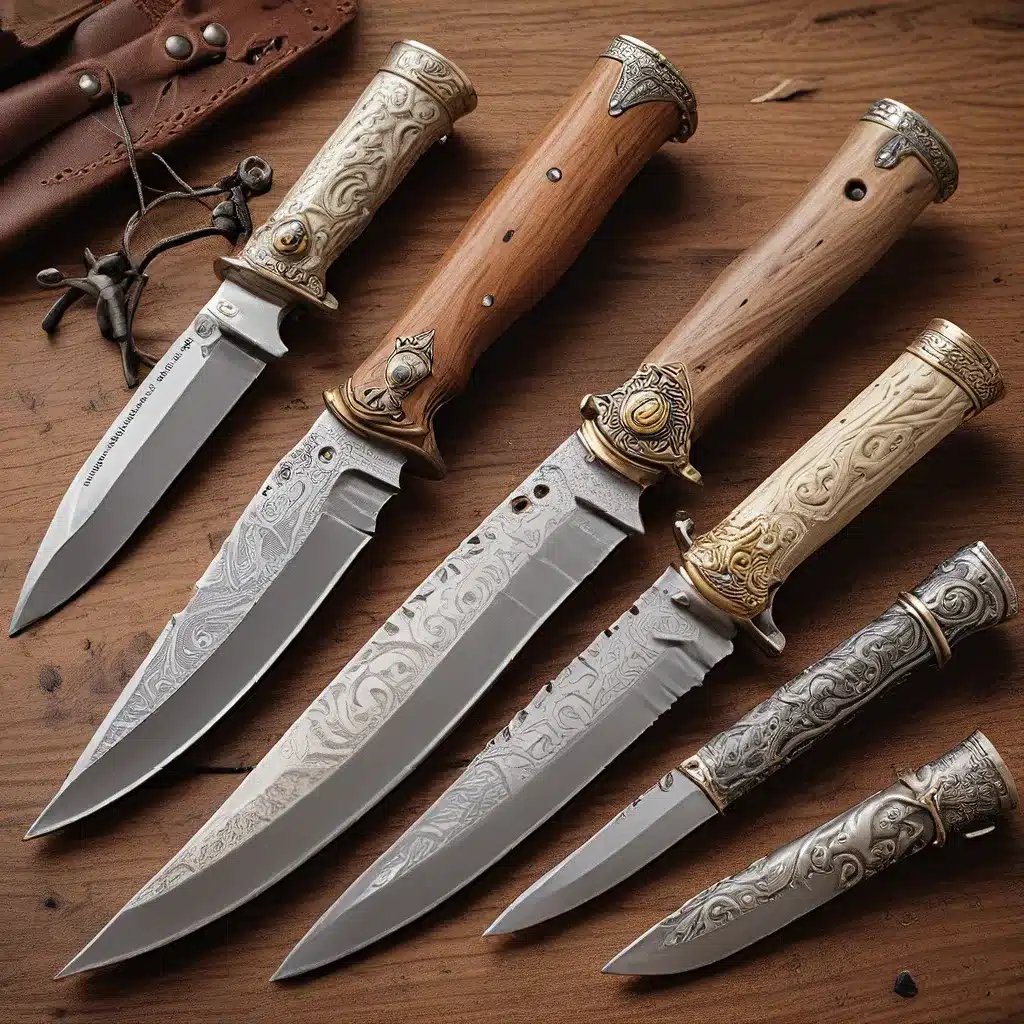
As a lifelong enthusiast of cowboy knives, I’ve always been captivated by the rugged allure and rich history of these iconic tools. Growing up, the stories of Cowboys and Indians and the legendary shoot-outs at the OK Corral ignited my imagination, and the Bowie knife – with its distinctive cross-guard and clip point – became a symbol of that lawless, pioneering era.
But these Old West knives are more than just relics of a bygone age; they’re living, breathing testaments to the individualistic mentality that defined the American frontier. Each blade, each handle, each intricate detail, speaks to the ingenuity, the craftsmanship, and the sheer grit of the men and women who tamed the Wild West.
In my pursuit to uncover the stories behind these remarkable collectible knives, I’ve delved into the archives, met with passionate collectors, and even had the privilege of handling some of the rarest and most sought-after pieces. And let me tell you, the more I’ve learned, the more I’ve come to appreciate the rugged legacy they represent.
The Enduring Allure of Cowboy Knives
Cowboy knives have long been an enduring symbol of the American West, reflecting a heritage steeped in ruggedness and self-reliance. These knives were not merely tools; they were essential companions in the daily lives of the pioneers and cowboys who inhabited the frontier.
From the mundane chores of camp life to the more demanding tasks of hunting and protection, the cowboy knife was a true multifunctional marvel. And as the West was gradually tamed, these knives evolved, leveraging new technologies and stronger materials while maintaining the essence of their original purpose.
One of the most iconic designs to emerge from this era was the Bowie knife, named after the formidable 19th-century knife fighter, Jim Bowie. With its long, heavy blade and distinctive clipped point, the Bowie knife became synonymous with the rugged survivalism that defined the period. Cowboys often carried specialized knives for different tasks, such as skinning knives for processing game or versatile camp knives for a range of chores.
The Art of Craftsmanship
What truly sets cowboy knives apart, however, is the level of craftsmanship and attention to detail that goes into their creation. These knives are not just tools; they are works of art, reflecting the skills and traditions of the communities that produced them.
Handmade cowboy knives, in particular, are the result of a meticulous process that often involves a single artisan or a small team. Each knife is shaped, sharpened, and polished by hand, allowing for personalized touches and unique designs. The craftsmen select high-quality materials, such as wood, bone, and Damascus steel, to construct durable and aesthetically pleasing knives that are built to withstand the rigors of the frontier.
In contrast, manufactured knives are produced using mechanized processes, ensuring consistency and affordability. While they may lack the same level of individual character, these knives still offer functional utility and accessibility to a wider audience.
The Cowboy Knife Community
The allure of cowboy knives extends far beyond their practical applications; they have become a cultural phenomenon, uniting enthusiasts and collectors from around the world. These passionate individuals dedicate time and resources to acquiring and preserving both historical pieces and modern interpretations of these iconic tools.
Online platforms have become the hub for the cowboy knife community, where enthusiasts engage in discussions, share knowledge, and even buy, sell, or trade their prized possessions. From antique knives with storied pasts to custom-built pieces that reflect the owner’s unique style, the community’s passion for these rugged tools is truly inspiring.
And the global reach of cowboy knives has only grown in recent years, as Texas-based manufacturers have established distribution channels that span the world. Now, enthusiasts from all corners of the globe can appreciate the craftsmanship and aesthetic appeal of these knives, while also connecting with the Texan heritage that defines their legacy.
Preserving the Tradition
As a collector and enthusiast, I’ve come to understand that maintaining a cowboy knife is just as important as acquiring one. From the leather sheath that protects the blade to the regular cleaning and oiling that keeps it in pristine condition, the proper care and accessories are essential for ensuring the longevity and functionality of these cherished tools.
Herman Knives, a renowned provider of high-quality cowboy knives, understands the importance of this tradition. They not only offer a diverse selection of handcrafted and manufactured options, but also provide comprehensive customer support, including detailed guidance on knife maintenance and accessories.
As I hold one of these rugged blades in my hand, I can’t help but feel a deep connection to the pioneers and cowboys who relied on them for survival and self-defense. And as I trace the intricate patterns of a Damascus steel blade or admire the unique grain of a bone handle, I’m reminded that these knives are not just tools – they are living, breathing testaments to the indomitable spirit of the American West.
So, whether you’re a seasoned collector or a newcomer to the world of cowboy knives, I encourage you to explore this rich legacy and uncover the stories that lie within each blade. Who knows, you might just discover a piece of history that speaks to your own rugged individualism and love for the Wild West.

